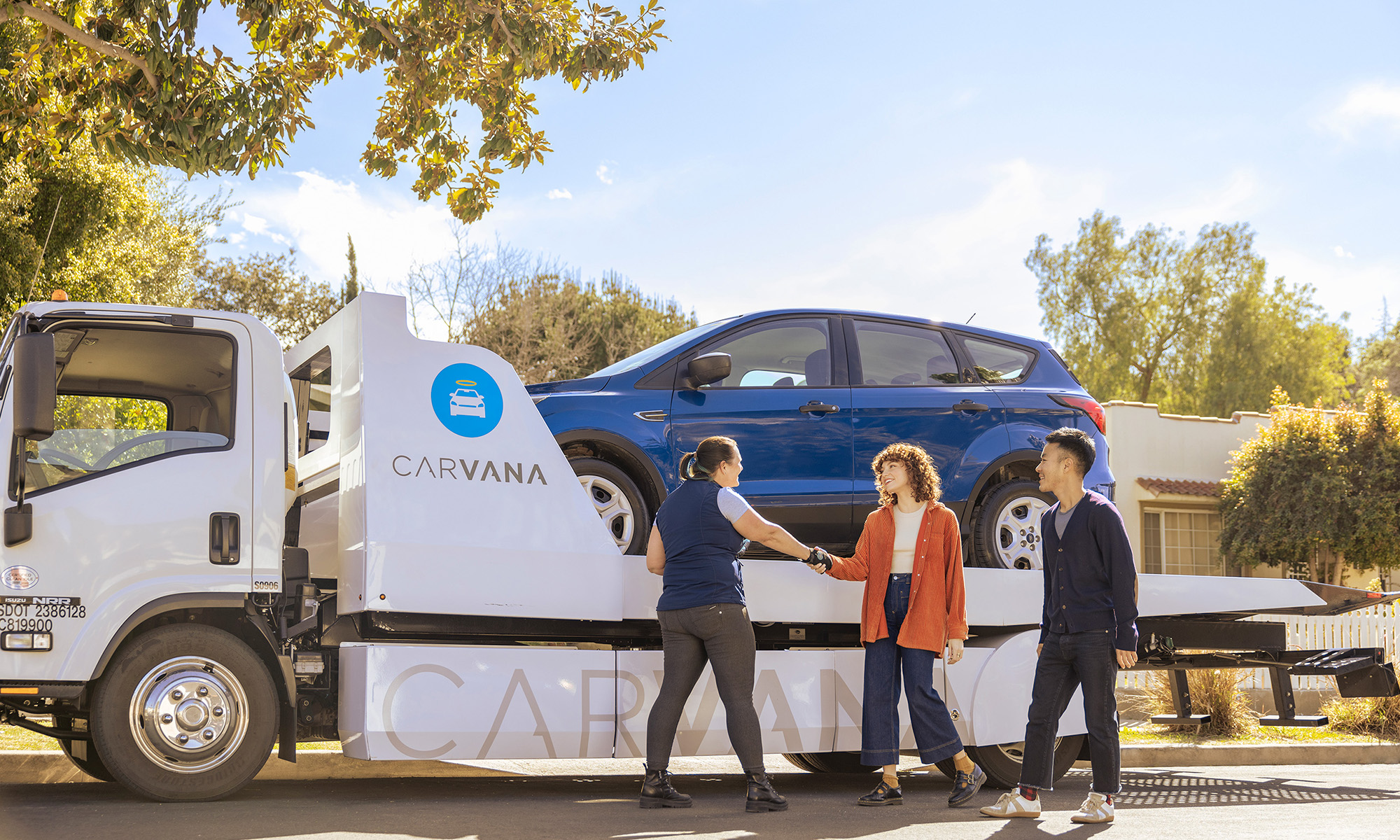In this segment from Industry Focus: Consumer Goods, host Vincent Shen and Fool.com contributor Asit Sharma assess technology-forward small-cap dynamo Carvana (CVNA 3.85%). They discuss the online used car dealer's competition and technology, as well as the ultimate question for Foolish investors: Is this stock worth holding onto for the long term?
A full transcript follows the video.
This video was recorded on Nov. 20, 2018.
Vincent Shen: There were some interesting comments from CEO Garcia about competition. He said, basically, given the large size of the market, this fragmentation among the competition, even if there are new companies to enter this more e-commerce-focused model for selling cars, it'll basically serve to normalize the concept or the idea of buying a car online. For some people, it still seems intimidating to not be able to see or handle or even test-drive a car that your purchasing, thousands of dollars. Overall, as that becomes normalized, even if there's some competition, that's something that's likely to lift the whole segment before becoming a more traditional fight for market share.
Last couple things that I will mention, used car selling is the main business driver for Carvana, but it's also experimenting with sourcing more of its inventory from customers. The number of vehicles that they will purchase directly from their customers grew over 270% year over year in the third quarter. It made up about 16% of the units the company sold via its retail channel. Something I wanted to get your opinion on, Asit, is all the acquisitions that the company has made in the past few years. I know that they're very focused on acquiring certain talent, certain capabilities that support this platform that they've created. What are your thoughts there?
Asit Sharma: The company is now shifting its focus toward technology. The last acquisition was the purchase of an artificial intelligence company, which will help facilitate more interaction on the site, and also interaction via SMS. Carvana is pretty tech-savvy to begin with, but utilizing the data that they have, they want to be able to anticipate the secondary questions a buyer might have, and be able to resolve those quickly, as well as know the buyer a little better from its data sets and suggest different options. Again, financing is one, if you think back to the GPU.
I think that's a smart move. At some point, the company has to build out some competitive advantages. The thing that it's got going for it, which is going to prevent competition from totally adopting its model, is its inventory doesn't sit on lots. It gets inventory after a customer makes the purchase or it gets it to the distribution point, but the company isn't in the business of buying a gazillion cars and putting those on lots. It's a more streamlined model. That contributes to the gross margin, but it also helps free up capital for the technology, these types of acquisitions that you're mentioning, Vince. I think that's very smart.
I also wanted to say that another inherent advantage going forward for the company is a stat that you just mentioned -- up to 16% of the cars that were sold in the last quarter, it acquired from other customers. This is pointing to a customer lifetime value model. It means that every time I need a new car, I stop going to whoever has the best price, visiting different dealerships. I become this customer who wants to buy and sell every car from one company. This is a long-term advantage if you consider that a competitor like CarMax has that inventory and all the land infrastructure that's tied to that. In the time it would take a larger competitor to adopt this model, Carvana can, over the years, convert people to lifetime customers. That's a very exciting proposition.
I think we'll see additional small acquisitions from Carvana. One of the things on the balance sheet that indicates that it probably is looking in that direction is the issuance of $350 million of unsecured notes just recently. It now has a little more firepower on its balance sheet, not only to patch up some of the losses it's generating, but also make a few small acquisitions. I do think we'll see more in terms of artificial intelligence.
As far as the talent -- that is, the people that it's bringing on -- because the general and administrative expense is relatively lower versus traditional used car companies -- in other words, it doesn't have a lot of sales people standing around lots creating overhead -- it has more money to invest in great people, in engineers, data scientists, etc. This is something we've seen in companies that we've talked about on the show. Analogous, I would say, to Stitch Fix, which is also big on making acquisitions, not just of companies, but of talent, of people who can make the systems more optimized to helping you get to that next purchase.
Shen: Final take, when it comes down to it for you, Asit, is this a yes stock? A no stock? Or something that you're putting on the watchlist?
Sharma: This is actually a yes stock for me. But you have to have a bit of a strong stomach, because the company doesn't have net income, per say. The next-best metric that we often look at is price to sales. I pulled that up this morning, Carvana is selling at 3X forward one-year sales, which actually isn't a sky-high valuation as price to sales ratios go. But it is a lot pricier. I'll bring up CarMax again, which trades that 0.5X forward sales. Of course, that's a much more slowly growing company.
If you purchase this stock today, there's potential for a correction, and we know the general market right now is soft. However, if you are yourself a millennial or middle-aged person like me who wants to buy a great company and hold it for several years, I think it's OK to start taking a position in Carvana. As I said, I do think it has some structural advantages to fend off competition as it begins to adopt some of the better aspects of how Carvana operates.
What about you, Vince?
Shen: I'm in the same boat as you. This is definitely a company that has been really cool to dig into, do that due diligence. I'm really excited about what they're building here, how that's changing the consumer experience. I'm seeing a lot of these core metrics like gross profit go very quickly up and to the right. I'm seeing the potential for all these markets that they can enter. This is definitely, definitely one that I will be, over time, adding and creating a position. Very excited for Carvana. Any final thoughts, Asit?
Sharma: Yes. If you have a chance, before you invest in the company, if you happen to be in a metropolitan area that has one of the Vending Machines, go visit it like I did. It will give you a clearer sense of the kinds of advantages that this company has. I thought it was probably just eye candy, but it creates a bond with the customer, when you vend your car and drive it off the lot, that's different than just stepping in and smelling the new car smell, just seeing the shiny new vehicle. They're onto something which is going to implant in younger people this desire to stick with them for a long time.
Shen: Yeah. To boil it down, it reminds me of the ultimate unboxing experience, which can really change how you perceive a product. A very cool company. Glad we're able to talk about this, especially as I wrap up my time with Industry Focus.






